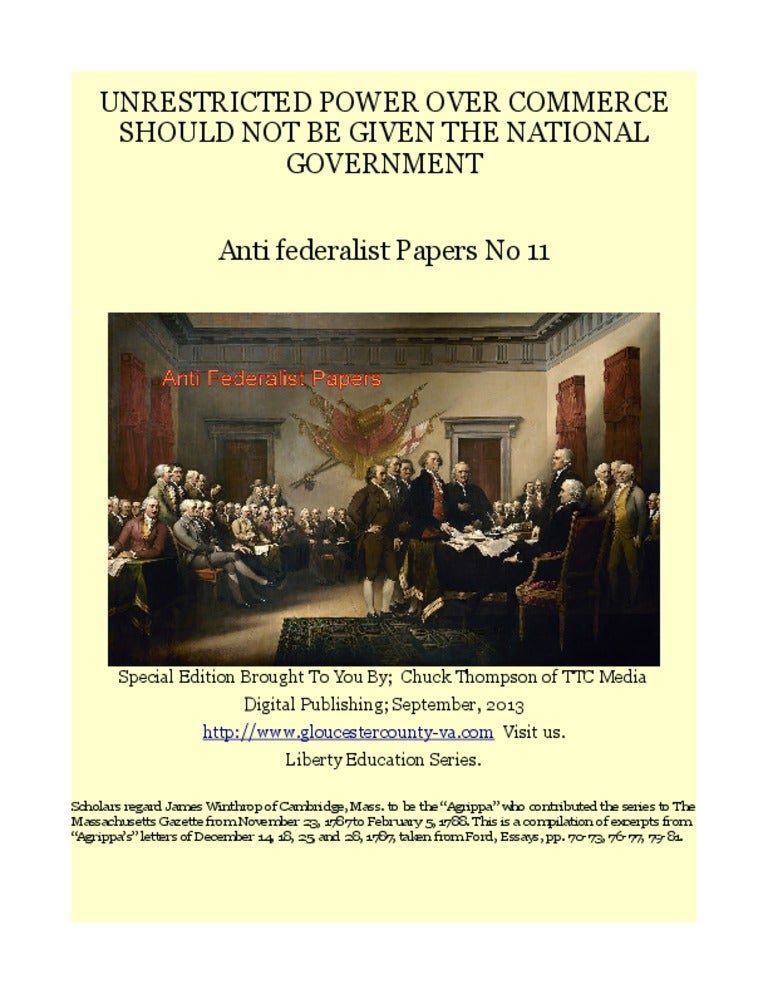
This clause led anti-Federalists to conclude that states and their citizens would be at the mercy of the national government.Īnti-Federalists considered extensive national power problematic for a number of reasons. Additionally, the Constitution contained a "supremacy clause" in Article VI that recognized the national government as the final arbiter of its disputes with the states. At the end of that list was a clause that allowed Congress "to make all Laws which shall be necessary and proper for carrying into execution the foregoing Powers." Anti-Federalists frequently argued that this phrase would allow the national government to formulate any law it wished, including ones that would be harmful and unrepresentative. Article I, section 8 listed the powers of Congress.

Phrases in the Constitution led anti-Federalists to believe that the power of the national government would, in theory, be virtually unlimited. Despite questions about their motivations, anti-Federalists clearly expressed their objections as a set of broadly applicable political views. Still others find that they were influenced mainly by political theory. Others argue that they wanted to protect their own political power. Some think they opposed the Constitution primarily for economic reasons. Controversy exists over the primary motivation of the anti-Federalists. The Constitution was made public in September 1787 and faced opposition almost immediately. They expected Federalists to do so as well, holding them to their ratification fight pledge that the Constitution granted the national government only specifically listed powers. After ratification, the anti-Federalists worked within the Constitution's bounds. This concession facilitated ratification, but it also created the expectation that the Constitution would be changed to address certain of its opponents' concerns. In several of them, supporters of the Constitution (who took the name "Federalists" and probably pinned the negative-sounding label on their opponents) agreed to recommend amendments to secure support from mild anti-Federalists.

Anti-Federalists were a significant presence in most states. This diverse group was concerned about the amount of power the Constitution would grant the national government, apprehensive about representation at the national level, and disturbed over the lack of safeguards for citizens' rights. The anti-Federalists voiced objections to the proposed Constitution in 1787–1788.


 0 kommentar(er)
0 kommentar(er)
